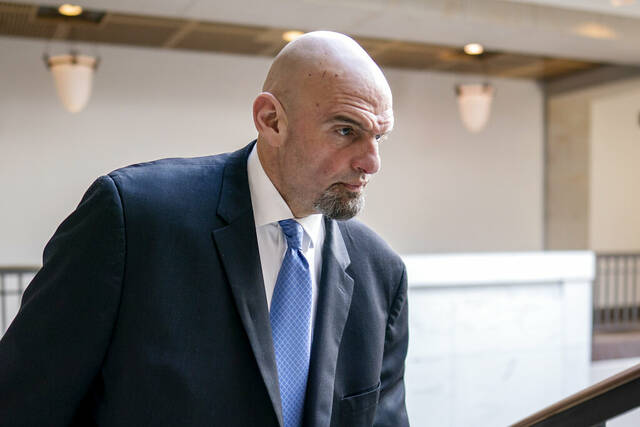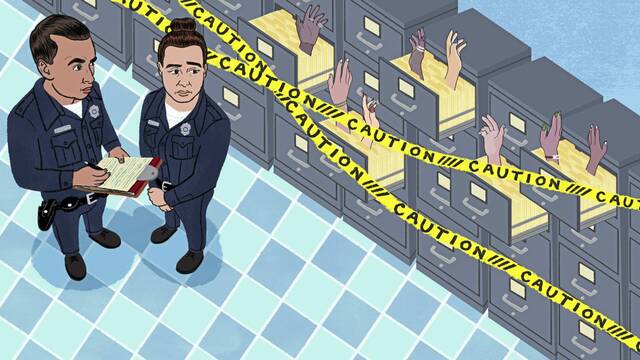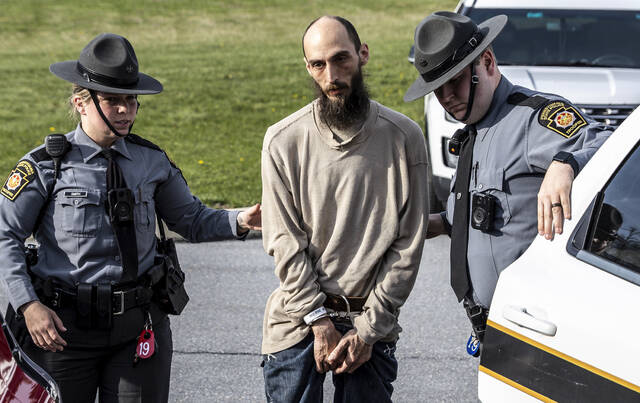It is a rare moment in modern history when both of a state’s U.S. senators are sidelined with health issues.
But if the Senate, where Democrats hold a 51-seat majority, were in session today Pennsylvania’s two Democratic senators would be absent.
Pennsylvania’s senior senator, Bob Casey, is recovering from surgery for prostate cancer. His spokeswoman said, “The senator should be back in a few weeks, but it ultimately depends on how his recovery goes.”
The day after Casey’s surgery, the state’s junior senator, John Fetterman, checked himself into Walter Reed National Military Medical Center for treatment for clinical depression.
CNBC reported on Friday a Fetterman senior staff member said the senator would be receiving inpatient hospital treatment “for a few weeks.” PennLive was not immediately able to confirm the accuracy of that report.
State Democratic Party officials say there has been no talk of the possibility that either might need to resign due to health concerns.
Party Chairman, Sen. Sharif Street, D-Philadelphia, voiced confidence that both senators would be back on the job soon.
“Despite recent reports about the health challenges facing our U.S. senators we fully expect both men to recover and don’t anticipate any vacancies.,” said Street. “That being said, should for some unforeseen reason a vacancy were to occur we at the PA Democratic Party are confident that Governor Shapiro’s administration would respond appropriately in the execution of its duties to fill the vacancy and stand ready to provide any advice or assistance the Governor deems appropriate.”
State Rep. Scott Conklin, D-Centre County, who serves as the state party’s treasurer, said he spoke with Casey after his surgery and he sounded “as vibrant and healthy as he’s ever been.”
The U.S. Senate doesn’t return to session until Feb. 27.
It remains unclear at this point how, if at all, Fetterman’s treatment will impact his ability to carry out his senatorial duties.
His decision to seek treatment for his depression follows a recent hospitalization related to lightheadedness. He returned to work on Monday after tests revealed he suffered neither a stroke nor a seizure.
Fetterman suffered a stroke last May and was diagnosed with cardiomyopathy, or a weakening of the heart muscles, and had a defibrillator implanted to correct an irregular heart rhythm.
Democratic Party vice chairwoman Peggy Grove of Harrisburg said she sensed something was wrong with Fetterman at the Jan. 28 state committee meeting.
Grove, who stumped for him during his Senate campaign last year, saw his strength shine through as he recovered from his stroke during a statewide campaign that is grueling even for someone without health issues.
“I think it’s very wise what he’s doing,” Grove said.
She added that with the legislative aides and staff both senators employ to carry on the work of their offices during their absences, “I think Pennsylvania is being held in good stead.”
But if one of them were to resign, longtime observers say the responsibility would fall on Democratic Gov. Josh Shapiro to name a successor. As for who that might be, Grove said, “it’s way too early to begin thinking about that.”
In Pennsylvania, when the governor faces that situation, it is a decision they make on their own. There is no requirement for a state Senate confirmation of the candidate.
The successor would serve until the November general election when a special election would be held unless the resignation occurred within 90 days of that election. If that were the case, the appointed senator would serve until the special election which would coincide with the following year’s general election. The winner of the special election would serve out the remainder of their predecessor’s term.
U.S. senators serve six-year terms. Casey is in the fifth year of his latest term and Fetterman is in year one of his term.
The last time a Pennsylvania governor has had to fill a U.S. Senate seat was following the death of Republican U.S. Rep. John Heinz in a plane crash in 1991.
That year, Gov. Robert P. Casey, a Democrat, chose to fill that seat with Democrat Harris Wofford, who went on to win the special election held in November of that year, beating former Gov. Dick Thornburgh. Wofford then served out the remainder of Heinz’s term until 1994 when he lost his re-election bid to Republican Rick Santorum.








